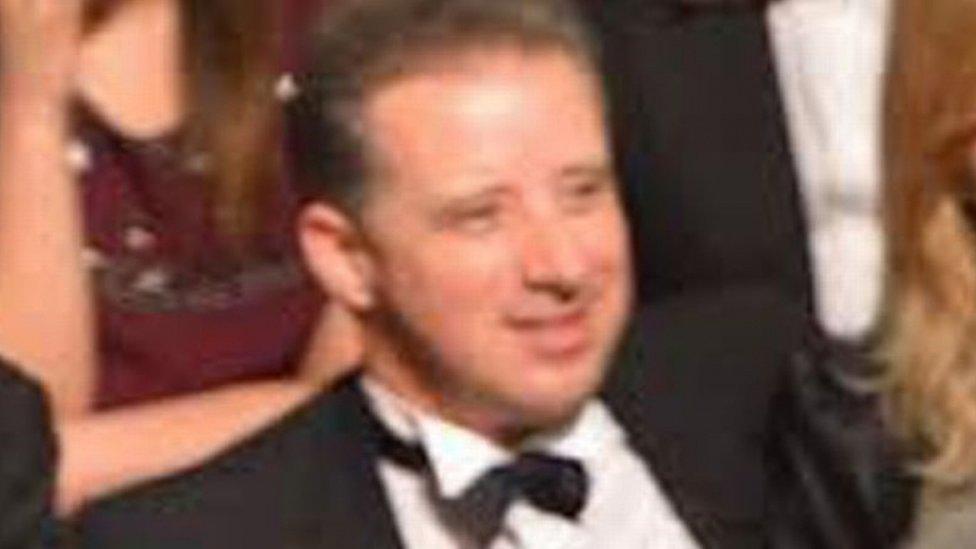Defamation case against Christopher Steele dismissed
- Published
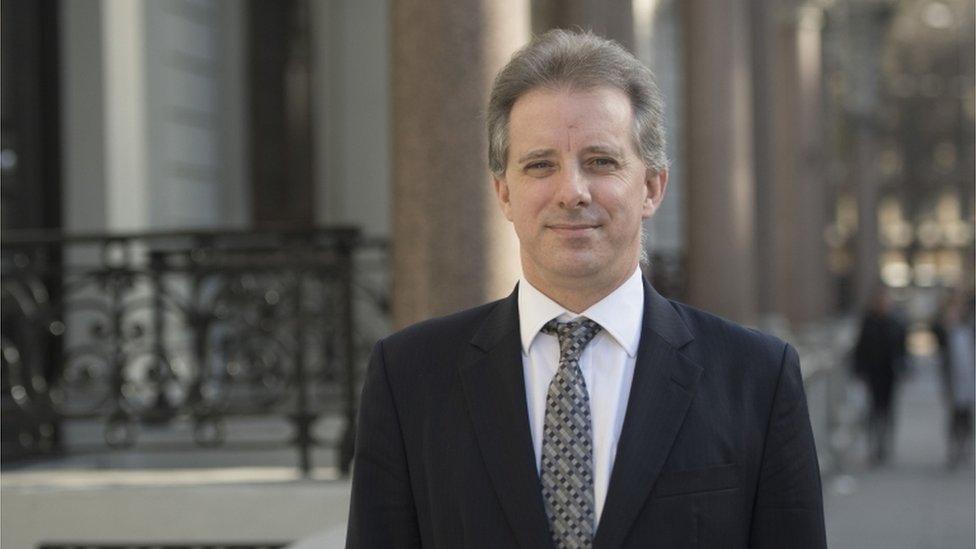
Christopher Steele, a former MI6 agent, wrote a series of reports for political opponents of Donald Trump about Trump and Russia.
A judge in Washington DC has dismissed a lawsuit against an ex-British spy who compiled a dossier alleging links between Donald Trump and the Kremlin.
Christopher Steele was sued by three Russian oligarchs who claimed he defamed them by writing that they tried to influence the 2016 US election.
Mr Steele's lawyers argued that the legal action was frivolous and an attempt to silence him.
On Monday a judge agreed, saying Mr Steele has a right to his opinion.
Lawyers for Russian billionaires Mikhail Fridman, Petr Aven and German Khan had argued that Mr Steele was not entitled to free speech protections under the first amendment to the US constitution, because he is not a citizen of the United States.
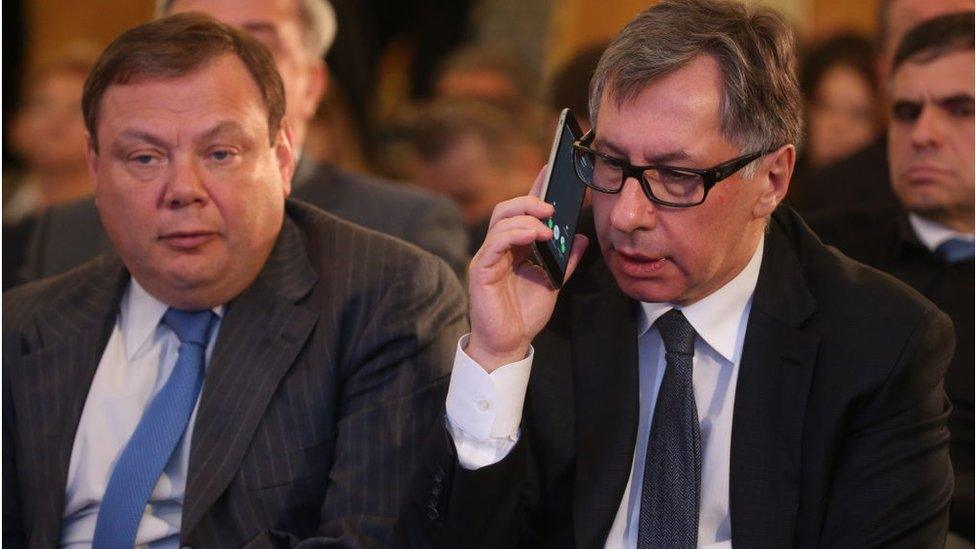
Mr Fridman (left) and Mr Aven (right)
But Judge Anthony Epstein disagreed, writing in his judgment that "advocacy on issues of public interest has the capacity to inform public debate, and thereby furthers the purposes of the First Amendment, regardless of the citizenship or residency of the speakers".
The judge also cited Washington DC's anti-SLAPP law (or strategic lawsuits against public participation), which prevents parties from filing lawsuits to tamp down on opposing political views.
Mr Steele's American lawyer, Christy Hull Eikhoff, said the court had shown support for the first amendment and the "profound national principle" that debate should be "uninhibited, robust and wide open".

Steele emerges triumphant
Analysis by Paul Wood, Special Correspondent, BBC News
This is a significant victory for Christopher Steele, who had argued through his lawyers that the owners of Alfa Bank - "Alpha" in the dossier - were trying to intimidate him into silence.
The court in Washington DC said Steele should have the same guarantees of free speech - under the first amendment to the US constitution - as American citizens. (Specifically, the court said, he should get the protection given by legislation designed to stop lawsuits being used by rich individuals to stop public debate.)
Alfa's owners accused Steele of acting maliciously or recklessly when he wrote a headline about "co-operation" between "Alpha" and the Kremlin in the US presidential election.
But the judgment says this headline represents Steele's opinion based on what his sources were telling him about the Alfa oligarchs' long relationship with Vladimir Putin, including the claim that they sent him "large amounts of illicit cash" when he was deputy mayor of St Petersburg.
It is true, as the court notes, that the dossier "does not present any direct evidence that Alfa interfered in the election".
The FBI has been investigating whether a computer server in Trump Tower was communicating with one belonging to Alfa Bank during the campaign. It is not known what, if anything, the FBI found.

Lawyers for the Russian billionaires told the BBC in a statement they would probably appeal the decision.
The three billionaires have previously brought a defamation case against Fusion GPS, the Washington DC-based research company that hired Mr Steele.
The dossier - containing salacious allegations against President Donald Trump - was first published BuzzFeed in January 2017.
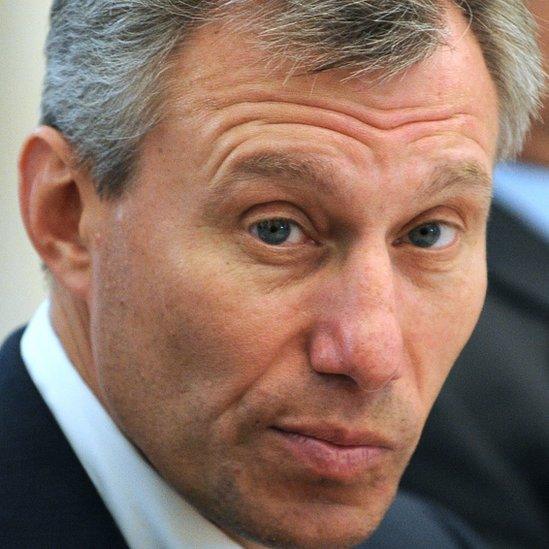
German Khan and two other Russian tycoons are mentioned in the so-called Trump dossier
President Trump has repeatedly dismissed the Steele dossier on Twitter as "fake" and "fraudulent".
He has also called Mr Steele a "lowlife" and claimed that the document was financed by his 2016 presidential rival Hillary Clinton.
- Published17 July 2018
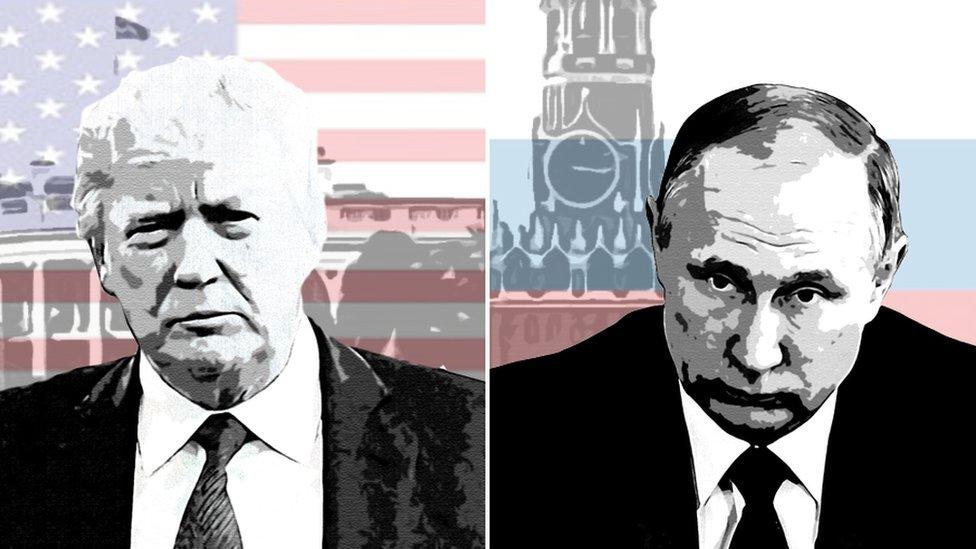
- Published12 January 2017
